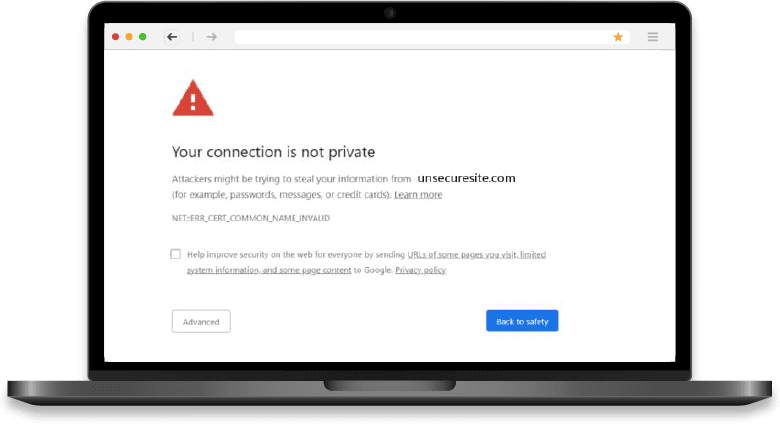Yes, web hosting. That’s when you pay a hosting provider to basically “rent” space on their server to house your website on the World Wide Web. Websites contain all sorts of things like HTML, CSS and images—all things that need to be housed on a server to be viewable online. What’s a server? A server is like a mega computer holding tank for websites and data that also offers the connectivity and other services needed to make your website viewable to the general public online.
There are many options for web hosting out there at a really low cost, so you might wonder why you would ever pay a premium price for simply hosting your website when you can host for as little as $2/month? Well, let me drop some knowledge on you…
Website uptime
Alright, this might be one of the biggest reasons to invest in premium hosting for your website. When you pay for premium hosting there is often a guaranteed uptime for your site and email. (Uptime is the amount of time your website is accessible to online users. Ideally, you want 100%—as in always accessible. This is the opposite of downtime, which is when users can not access your website.)
Of course, things happen, like a city worker cuts the wrong cable and your site is down (this legit happened a year ago and no, it’s not fun). But, stuff happens. However, when you host your site with a company like Bluehost, GoDaddy, Shopify (the list goes on), you’re typically sharing a server with thousands of other sites. When you are on a server with all those other sites, if something goes wrong with the server because of one of those other websites, then your website goes down. And worst of all, there is no immediate fix.
Example: Your small business is selling soap on Shopify. It’s one of thousands of other small businesses all hosted on the same Shopify server. Let’s say that one business gets featured on a very popular influencer’s Instagram account and the website traffic has increased rapidly, overwhelming the server which causes it to crash, leaving you high and dry until it’s remedied–which could take minutes, hours, or I’ve even seen days in some cases.
The difference with premium hosting is that you aren’t on the same server as thousands and thousands of others. And, with premium hosting, if another website gets noticeably more traffic, you can be rest assured that it is constantly being monitored and would be moved to a different server to ensure that your business’ website wouldn’t be disrupted. That way, you can keep on selling those beautifully crafted artisan soaps with no web interruption (or downtime).
Security is included
I can’t tell you how many times I’ve come across sites that don’t have SSL Certificates, something that is standard for all sites and browsers. A SSL Certificate authenticates websites and makes them more secure with HHTPS encryption so that anything your users share on your website remains private and can’t be viewed by any shady people.
Having no SSL Certificate throws up a big warning and sites without these security measures are blocked. So many of these “discount hosting” organizations hook you in with the low hosting fee, but fail to mention that something as standard as an SSL Certificate is an additional fee per month. And since it just seems like an add-on service, people don’t tend to think it’s important. With premium hosting, you’re getting everything you need included and you won’t wind up looking like this when someone types in your web address:

Site Speed
Have you ever been on a site that is just taking forever to load so you just give up and go somewhere else? You’re not alone. In fact, 88% of internet users choose online retailers that deliver a high-performance website experience.* And $18 billion is lost annually because of abandoned shopping carts.**
A great way to check your site speed is using a page speed test like this one: developers.google.com/speed/pagespeed/insights/
Oftentimes, when your site is hosted with thousands of others your site speed is going to be slower. Think back to my first example—the more traffic on a server the slower it becomes which creates a higher probability it will crash. The servers also tend to be a little older since upgrading would be quite the project to migrate all those hosted sites to a new, updated server. With premium hosting, you will be guaranteed top technology allowing for a faster, more reliable, and all around better user experience.
Now, I know it seems like I’ve absolutely destroyed cheap hosting sites. But, they aren’t all bad. They’re a great alternative to premium hosting if you’re not worried about site speed, uptime or security. I, myself, have used cheap hosting believe it or not. I built a site to communicate with my architect what we like and don’t like for house plans. There isn’t any personal information listed, I could care less if the site goes down for a few hours or if it is a little on the slow side. I also could have put everything I have on that site in a Word document and it would have been just fine, but #webdeveloper.
If you’re working on a small personal project, then using discounted hosting absolutely makes sense. However, if it is your business, I can’t stress enough the importance of reliable hosting. You won’t only gain a better user experience, but you’ll also have some peace of mind knowing your site is being taken care of and that artisanal soap business can keep on thriving.
*Neil Patel
**Radware


